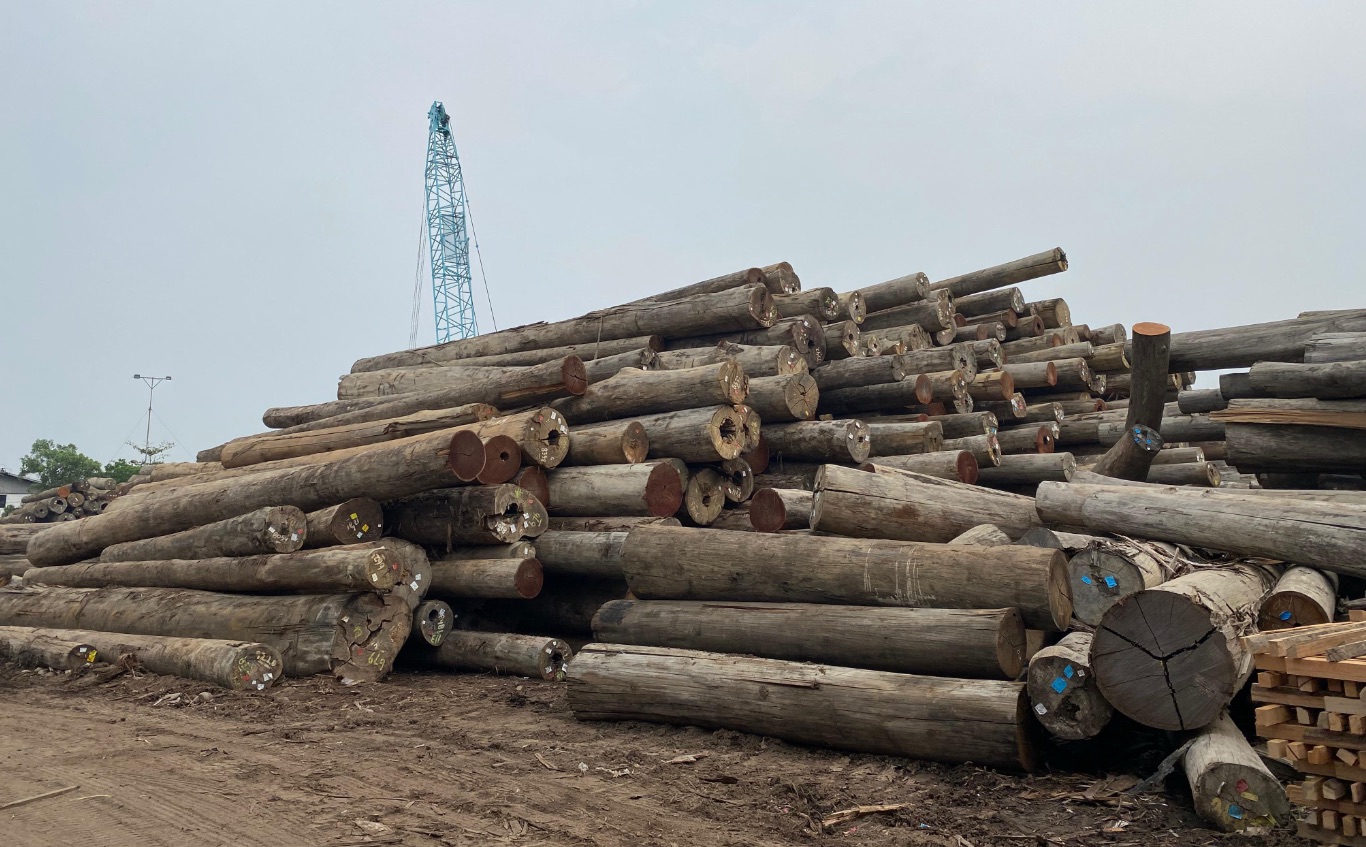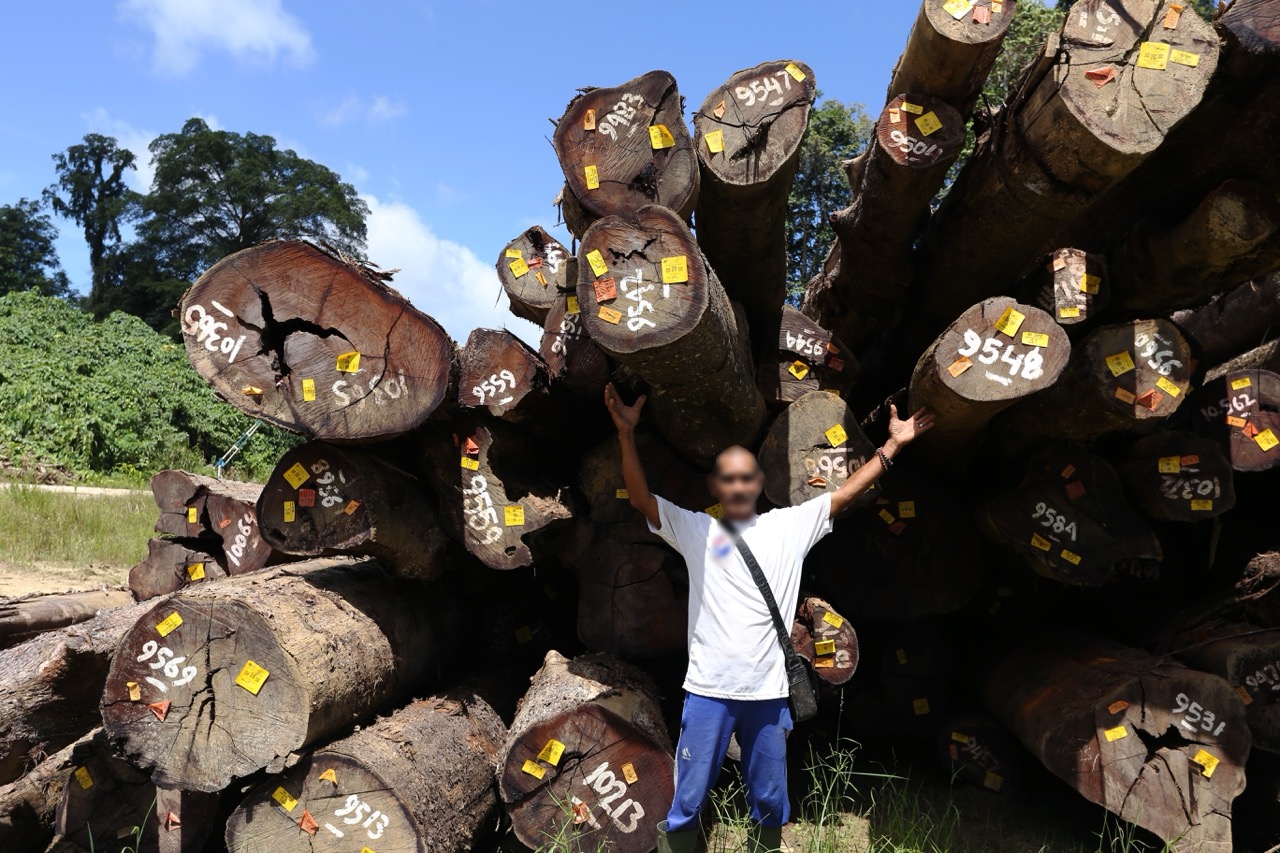Joint Statement
SVLK Under Siege: Indonesia’s Timber Credibility and Economy at Stake
We, civil society organisations, environmental activists, academics, and forestry practitioners urge the Indonesian Government to immediately halt the proposed weakening of the Legality and Sustainability Verification System (SVLK) for Indonesian wood products.
The Ministry of Trade and the Coordinating Ministry for Economic Affairs plan to deregulate 441 HS codes in the forestry sector, including making V-Legal documents optional for markets outside the EU and UK, and revoking the requirement for Due Diligence and Import Declarations for wood products. This proposal is framed as a response to US tariffs and an effort to increase export competitiveness. However, we believe that this move will have significant economic consequences, including:
- Loss of market trust and export opportunities: The global market is becoming increasingly selective, with buyers and consumers demanding strict guarantees of sustainability and legality. The SVLK, which has been consistently implemented in Indonesia since 2010, has succeeded in enhancing Indonesia's reputation as a trusted supplier of legally and sustainably sourced wood products. with exports reaching US$14.51 billion in 2022. Weakening the SVLK will create uncertainty among international buyers, jeopardising Indonesia's current and future market share.
- Reduced competitiveness in the global market: The global timber trade is moving towards stricter compliance and sustainability standards. Competitorslike Vietnam and Malaysia are investing heavily in robust legality and certification systems. Weakening SVLK risks relegating Indonesian timber to low-value markets, hindering international competitiveness.

- Risks to trade negotiations and tariffs: Weakening Indonesia's commitment to sustainable and legal timber trade sends a contradictory signal to trade partners. This may damage Indonesia's credibility in adhering to international agreements, such as the Voluntary Partnership Agreement (VPA) with the EU and UK, potentially resulting in sanction.
- Negative impacts on small and medium-sized enterprises (SMEs): A fragmented system with certified and non-certified wood products will create confusion and increase compliance costs. SMEs will struggle to access international markets that demand legality documentation, reducing their income opportunities.
- Long-term revenue loss: Weakening the SVLK system will open the door to increased illegal logging and unsustainable practices, damaging the forestry sector's ability to support the national economy in the long term.
Strengthening SVLK: A Smart Economic Move for Indonesia.
The SVLK system has successfully positioned Indonesia as a leader in the trade of legal and sustainable wood products, contributing to significant export growth, access to premium markets, and long-term market trust. Maintaining the integrity of the SVLK system will ensure that Indonesia can:
- Retain and expand its global market share: Preserving access to profitable and high-value markets ensures stable export revenue and further market expansion.
- Increase investor and buyer confidence: A strong and transparent system signals Indonesia's commitment to good governance, enhancing economic trust and partnerships worldwide.
- Protect SMEs: A credible system ensures fair competition, reduces confusion and uncertainty, and allows SMEs to benefit from global opportunities.
Call to Action
- We urge the Ministry of Trade and the Coordinating Ministry for Economic Affairs to suspend plans to deregulate the timber trade and instead work with the Ministry of Forestry and key stakeholders to develop trade policies that address tariff challenges without sacrificing Indonesia's long-term economic interests. Reforms should strengthen, not weaken, Indonesia's reputation for producing legal and sustainable timber.
- We further urge relevant ministries to promote the acceptance of Indonesian timber products through platforms like the Broader Market Recognition Coalition.
- We also urge trading and development partners such as the EU, UK and US to continue supporting robust systems like SVLK through their policies and cooperation with Indonesia.
Signatories:
2. Dr Agus Setyarso
3. Dr Rahmanta Setiadi
4. Ir. Diah. Y. Suradiredja, M.H
5. Daru Asycarya
6. Ahmad SJA
7. Macx Binur
8. Efendi Isma


